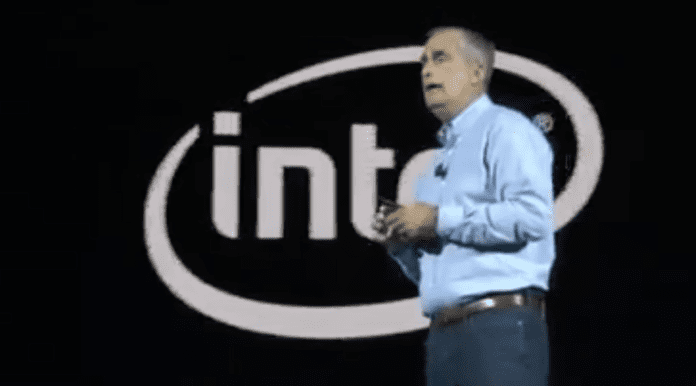Intel CEO Brian Krzanich begins CES with keynote presentation
Las Vegas, Nev. — Intel CEO Brian Krzanich kicked off the Consumer Electronics Show (CES) this week with a keynote presentation centered around drones, autonomous vehicles and quantum computing.
Krzanich began his keynote addressing a security glitch recently discovered in almost every Intel processor chip made in the last decade. “As of now, we have not received any information that these exploits have been used to obtain customer data,” Krzanich said. He added that the company expects to release updates for over 90% of Intel products introduced in the past five years by the end of the month.
Krzanich spent over an hour alongside various partners, giving presentations of tech novelties propelled by Intel chips and associate technologies. A self-driving Ford Fusion made its way onto the keynote stage with Krzanich as well, making it the first 100-vehicle test fleet run by Israel-based software company Mobileye, which Intel acquired for $15 billion in 2017.
Many of the demonstrations consisted of showing the impact virtual reality is having on the world of sports. Intel’s new True VR technology, for example, will be leveraged during the Winter Olympics in South Korea next month and for National Football League playoff games. Additionally, the company announced the opening of a Los Angeles-based studio space for the production of virtual reality and augmented reality.
Intel also touted its Volocopter, an autonomous drone, which Krzanich described as “essentially a flying car.” The Volocopter flew onto the stage for a short period behind a barrier, during which a disclaimer appeared beneath the keynote stream stating the autonomous drone would not be available in the U.S. before receiving authorization from the Federal Aviation Administration.
Krzanich announced Intel moved one step closer toward its goal of developing a total quantum computer system with a 49-qubit superconducting quantum test chip too; although, he did not provide details concerning when the chip might be released.
“There’s quite a bit more work required than just this chip, but this is a major breakthrough in quantum computing,” Krzanich said. “We believe the biggest impact will be in material science and the discovery of new materials such as superconductors and new molecules to advance pharmaceuticals. I’m confident it will transform our lives for the better.”
Krzanich brought the presentation to a close with a light show powered by 100 Shooting Star Mini drones, which do not depend upon GPS for navigation. Krzanich added the demonstration set a Guinness Book of World Record for the most unmanned aerial vehicles airborne at once indoors under computer control.

